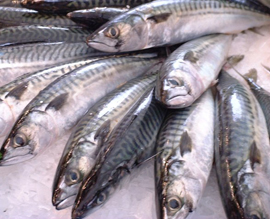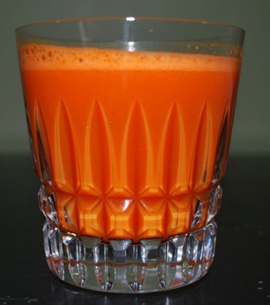Inflammation relief
| print the page | email the page |  |
|
Balancing and healing heart disease, back pain and arthritis with anti-inflammatory, healing foods - by Kay Hutchinson
- Inflammation in the body
- Friendly oils
- Friendly spices
- Healing beverages
- Food that increase inflammation
Inflammatory responses in the body can create a wide range of health challenges including heart disease, chronic back pain, arthritis, COPD, irritable bowel syndrome, asthma, sarcodosis, and Crohn’s disease.
When people experience acute inflammation they often possess a high level of c-reactive proteins, which is produced by the liver. Thus, often times, medical doctors can assess the level of systemic inflammation with blood tests for c-reactive proteins.
Often times, physicians prescribe anti-inflammatory medications such as steroidal and non-steroidal drugs. However, these medications can often be hard on the liver and other internal organs.
In this article, Kay Hutchinson will focus on how to use food as a anti-inflammation healing tool.
Advertisement
 The essential fatty acids that benefit heart disease such as Omega 3, also have properties that are anti-inflammatory so relieve pain, improve breathing issues that have an inflammatory aspect, and reduce inflammation within the bowels.
The essential fatty acids that benefit heart disease such as Omega 3, also have properties that are anti-inflammatory so relieve pain, improve breathing issues that have an inflammatory aspect, and reduce inflammation within the bowels.
Sources of omega 3 include: canola and olive oil, flax seeds, fish such as salmon, tuna, swordfish, and halibut, walnuts, and pumpkin seeds.
Omega 3 supplements are usually available in the form of fish oil capsules, flax seed oil, borage oil, and evening primrose oil (which can balance estrogen and testosterone, and help to lower cholesterol).
However, before taking oil supplements, one should consult a medical doctor or nutritionist as natural does not always mean safe.
For example, in some studies, the use of flax seed oil supplements has been shown to exacerbate prostate enlargement or cancer. Thus, some oncologists suggest that men consume flax seed powder and other food sources to increase omega 3 instead of taking flax oil supplements.
Fish oil supplements also may contain heavy metal toxins depending on the conditions of the water and pollutants that fish may ingest. Thus, people with compromised livers, immunity systems, or kidneys should consult a doctor before taking fish oil supplements.
Borage oil and evening primrose oils are a good alternative to fish oil supplements, but again check with a physician as these oils can also increase the effects of certain blood thinning medications such as coumadin (Warfarin).
 Spices such as turmeric, ginger, black pepper, cinnamon, saffron also have anti-inflammatory properties.
Spices such as turmeric, ginger, black pepper, cinnamon, saffron also have anti-inflammatory properties.
For example, many of my clients with arthritis and other forms of joint and back pain, drink ginger tea with cinnamon several times a day to help reduce swelling and pain.
These spices tend to be warm in nature so are nourishing to the spleen which rules the muscles.
However, these spices, because of their warm and stimulating nature, can also raise blood pressure.
Use them in moderation if you have hypertension (high blood pressure) or in combination with other foods that are more cooling in nature such as leafy green vegetables, cucumbers, or mint.
Before purchasing turmeric or other spice supplements, check with your medical doctor or nutritionist, because like certain types of friendly oils, these spices can interact with chemical medications and are not appropriate for everyone.
Advertisement
Healthy Juice: Anti-inflammatory Support
- 6 large organic carrots
- 1 piece of fresh organic ginger root at 1 inch long
- ¼ tsp of cinnamon powder
- 1/8 tsp nutmeg
 Juice the above ingredients. Drink ½ cup of the juice twice a day.
Juice the above ingredients. Drink ½ cup of the juice twice a day.
The carrots nourish the liver and spleen (so helps with blood pressure, eye issues and muscles), while the ginger reduces inflammation in the body.
Diabetics should limit their intake of this juice to ½ cup at a time as the carrots contain a significant amount of carbohydrates.
Foods that increase inflammation
Try to eliminate these foods from your diet:
Hot sauces or dishes with lots of cayenne or paprika
Often plants in the capsicum family of peppers, such as red pepper and cayenne, fall into the nightshade category so may exacerbate inflammation when consumed.
Ironically, the essential oils from these cayenne peppers and red peppers are anti-inflammatory when applied topically.
Thus, you might see liniments with capsicum extract or cayenne added to promote relief of arthritis or other inflammatory conditions.
Trans-fatty acids
Anything that says hydrogenated or partially hydrogenated oils on the label
High fat diet
Fried foods, heavy meats such as lamb, and fatty red meat
Foods high in sugar
Foods high in either white sugar or natural sugars
Plants in the nightshade family
Tomatoes, potatoes, eggplant, pimentos, many varieties of sweet and hot peppers paprika

Article by: Kay Hutchinson, chinese medicine practitioner
Article can be found: Aiki Healing - Health Prosperity, produced by Kay Hutchinson

